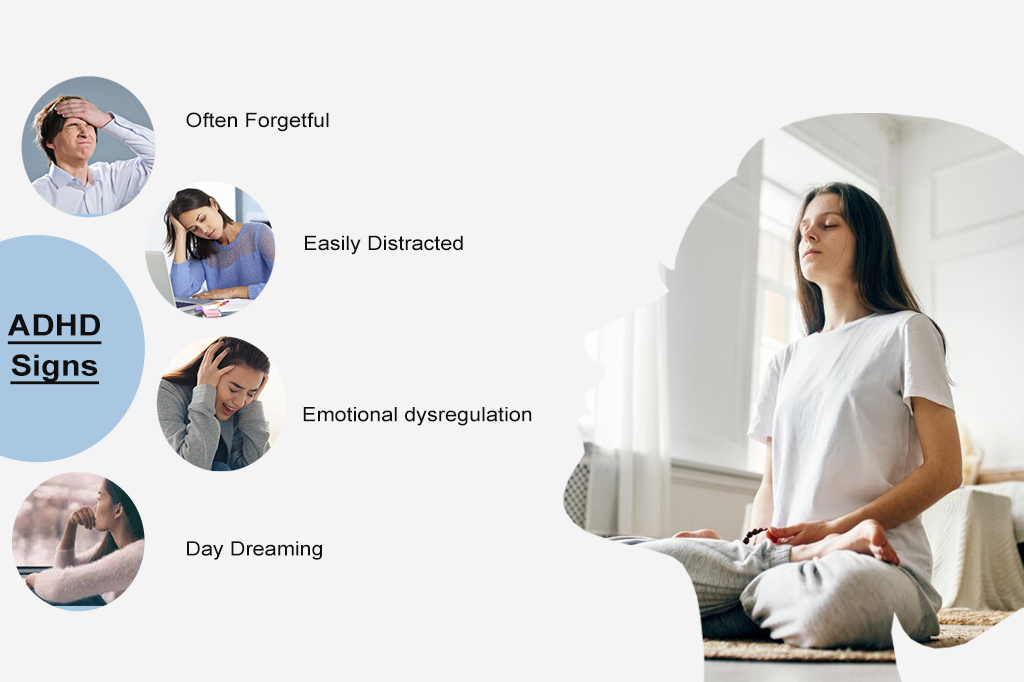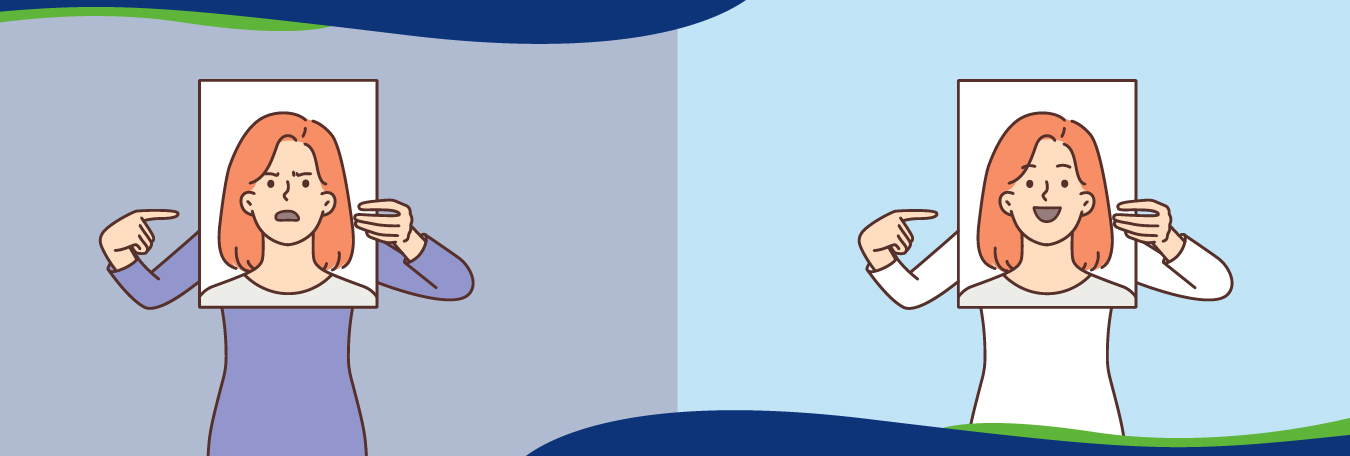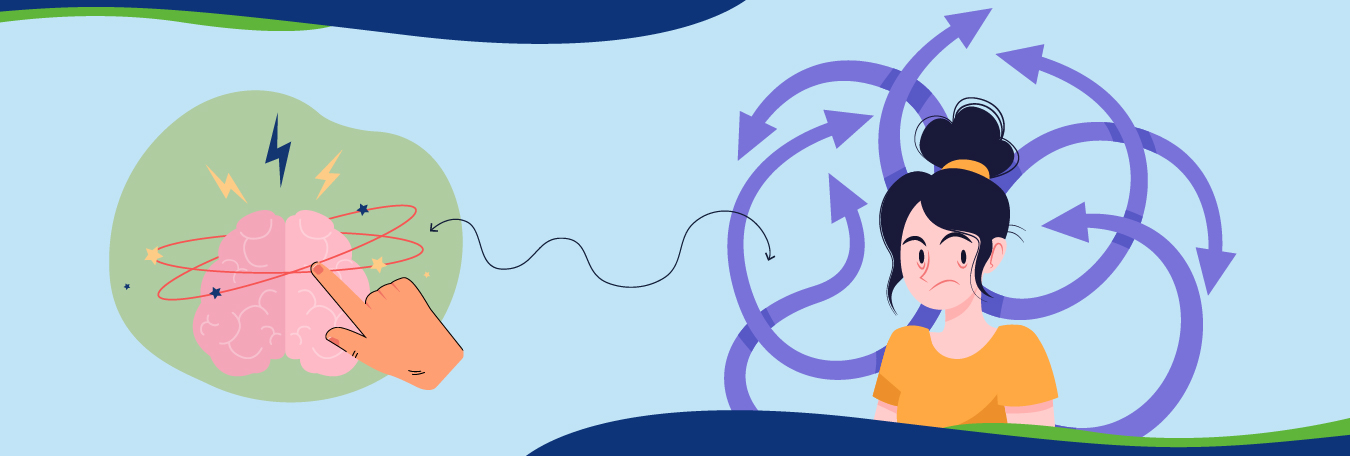ADHD is a neurodevelopmental disorder that mostly affects children. However, adults can also be affected by ADHD disorder. People with ADHD are more prone to develop depression. Both ADHD and depression have a strong connection between them. This article will provide a clear insight into ADHD and depression. After reading this article, you will better understand if there is any link between ADHD and depression in adults.
Attention-Deficit/Hyperactivity Disorder (ADHD)
ADHD stands for Attention-Deficit/Hyperactivity Disorder. It’s one of the most common neurological disorders that affect the brains of children. Due to this disease, children are unable to focus on daily activities and also exhibit uncontrolled behavior. However, the life of most adults can also be affected by ADHD and depression.

Symptoms of ADHD
The initial ADHD depression symptoms are less severe but the condition can get worse with the increasing age. Some common symptoms include:
- Reduced levels of self-esteem
- Elevated anger
- Panic disorders
- Impulsiveness
- Anxiety
- Depression
- Common frustration
- Loss of concentration
Causes of ADHD
Numerous factors can cause this disease including:
- Brain injury
- Genetic issues
- Imbalanced brain chemicals
- Environmental factors
- Intake of alcohol and drugs during pregnancy
Types of ADHD
There are different types of ADHD having distinct diagnoses and treatments.
Hyperactive-Impulsive Type
This ADHD type is characterized by near-constant movement, fidgeting, talkative behavior, squirming, interrupting, etc.
Inattentive type
Persons suffering from the inattentive type are unable to pay attention to their important life aspects. Moreover, they make unexpected mistakes and never listen to anyone. The most common symptom is the loss of passion for doing productive things.
Combined ADHD type
Among all the ADHD disorder types, the combined ADHD type is more common. Furthermore, combined type ADHD patients usually experience the symptoms of both hyperactive-impulsive type and attentive type.
Depression
Depression is a serious but common mental disorder. Furthermore, depression is also named as clinical depression or major depressive disorder.This disorder is characterized by a lack of interest and persistent feelings of sadness and anger. This disorder negatively affects the behavior of a person and can cause severe internal body issues.
Types of Depression
There are a few different types of depression which have varied symptoms. However, the extent and the occurrence of depression are also different among persons.
Major Depression:
Severe chemical imbalances in the brain can result in major depression. This type of depression lasts for two to three weeks.
Persistent Depressive Disorder
Although the symptoms are less severe, the depression condition can last for a longer period, usually for two years.
Seasonal Depression:
Most people experience seasonal depression during winter.
Perinatal Depression
Various females suffer from the perinatal depression during or after the pregnancy. Postnatal depressive disorder is also common in females around childbirth. However, postpartum depression begins after the pregnancy.
Psychotic depression: Loss of belief in reality along with some symptoms such as paranoia, hallucinations, and delusions.
Melancholia: This type of depression gets worse with the severity of the symptoms including:
- Slower body movements
- Complete loss of calmness and pleasure
- Extreme low levels of happy mood
Symptoms of Depression
The most common depression symptoms include:
- Persistent feelings of hopelessness
- Lack of interest and motivation
- Anger or fear
- Changes in the sleep-wake cycle
- Undesired body weight changes
- Current life situations
- Chronic inflammations
- Imbalance of neurotransmitters
- Allergies
- Infections
- Hormonal imbalances
Major Causes of Depression
Just like the symptoms, the causes of depression are also different. Some possible and common causes of depression are as follows:
- Family history
- Early life experiences
- Health issues
- Misuse of medication
- Disturbed sleep cycle
- Eating abnormalities
Read More: Is eating disorder a mental illness?
Genetics of ADHD and Depression
The 27 different variations in the genetic code are responsible for the development of ADHD and depression. Moreover, Dopamine D5 and Dopamine D4 are the major contributing genes in this disorder. ADHD and depression affect the normal functioning of different body parts including the cerebellum, prefrontal cortex, basal ganglia, parietal, and temporal cortex. Additionally, alteration in these brain areas results in the impairment of various activities such as motivation, memory, responsive inhibition, and impulsivity.
Various US studies have suggested that 10% of American Adults suffer from Clinical depression at some of their life stages. Depression is genetic and it can transfer among the related individuals. The ratio of genetic factors causing depression is 40%, while environmental factors account for 60%. Furthermore, the rate of hereditary depression is also greater in females as compared to males. A person having a sibling with depression is more likely to develop this disorder as compared to unaffected individuals.
The Main Depression Gene
Different studies have suggested that chromosome 3p25-26 is involved in causing depression and ADHD symptoms.
The Link Between ADHD and Depression
There is a close link between ADHD and depression. Moreover, ADHD is often associated with various mental disorders including depression, anxiety, OCD, schizophrenia, bipolar disorder, and many more. Primarily, various studies reported that approximately six in ten American individuals suffer from ADHD with depression, anxiety, and various other mental disorders.
Some therapists believe the fact of ADHD causing depression. Furthermore, adults suffering from ADHD disorders have a greater chance of experiencing depression in the following ways:
- ADHD patients face difficulty in focusing on their core tasks and they feel that they are unable to achieve their life goals. The loss of a sense of pleasure causes their depression.
- Lower self-esteem and negative self-perception in ADHD are also major reasons for depression.
Can ADHD cause depression in adults?
Persons suffering from ADHD have more emotional dysregulation as compared to healthy individuals. In ADHD, the body releases more stress hormones including cortisol. Happy hormones including dopamine and serotonin are not released in the body due to emotional disturbance. The affected individual automatically gets depressed. However, specific phobias, mood disorders, bipolar disorders, and social anxiety disorders can develop under severe conditions.
Which ADHD Factors Can Cause Depression?
If you are an ADHD patient, then the following risk factors can be the major cause of your depression.
ADHD Type: Combined type ADHD that involves inattention and hyperactivity-impulsivity causes more depression in patients as compared to the other ADHD types.
Gender: Males have a greater chance of developing ADHD. However, female ADHD patients are more likely to experience depression in their life.
Maternal Health History: Emotional disturbance in females during pregnancy can also affect their child. Furthermore, reduced levels of dopamine and serotonin can affect the developing fetus and can target the development of the nervous system. However, after birth, there is a greater probability that children can suffer from ADHD and depression, or any mental abnormality in their later life.
Overlapping symptoms
In most cases, similar symptoms occur in both cases, although the causes are different. So most of the time, it is difficult to diagnose the actual mental condition due to overlapping symptoms of ADHD and depression. Among all, low motivation is the major common symptom that both ADHD and depression patients usually experience. However, due to a lack of motivation, they stop taking part in essential tasks and feel pleasure in doing nothing. Some other overlapping symptoms include:
- Boredom
- The feeling of nausea and restlessness
- Lack of concentration
- Fatigue or tiredness
- Abnormality in functions of the digestive system
How to Spot The Difference?
The best possible way to diagnose ADHD depression in adults is to first determine their childhood history. Unidentified ADHD can be diagnosed after thorough analysis. However, in children, the few symptoms that are distinct in the case of both ADHD and depression are as follows:
- Severe anhedonia
- Slower body movements
- Suicidal thoughts or any depressive signs
Except above, it’s not effective to analyze other overlapping symptoms including sleep problems, loss of appetite, bad concentration, and irritability.
Both ADHD and depression also differ in the case of children. There is always a reason for low self-esteem in children with ADHD. However, there is no apparent reason for low self-esteem in children facing depression. Moreover, children with ADHD strictly avoid learning while depressed children just do not feel the capability to manage emotions at school. Similarly, another major difference is that ADHD children feel pleasure in isolation but still want to socialize. On the other hand, children with depression hate social activities.
Combined severity of ADHD and Depression
The ADHD severity has a reciprocal relationship with the severity of depression. The more severe the ADHD symptoms, the worse the symptoms of depression. Furthermore, ADHD patients consider their life challenges more complicated which ultimately directs them towards depression.

Treatment of ADHD and Depression in adults
Both ADHD and depression can be treated with psychiatric medication management and different other therapies.
Use of Stimulants
In ADHD treatment, various stimulants are used that cause the release of various brain neurotransmitters that improve logical thinking. They are considered the best ADHD medication for adults with depression. Moreover, some commonly used stimulants include Ritalin, Adderall, ProCentra, Focalin, etc. But stimulants have also some side effects as they can disturb the sleep-wake patterns. They can also cause decreased appetite, nausea, and uncontrolled blood pressure.
Side Effects of Medications
One of the potential side effects caused by the ADHD and depression medication is the arousal of suicidal thoughts that need immediate medical consultation. If the ADHD depression diagnosis occurs at an early age, then there is a higher likelihood of experiencing suicidal thoughts in later life. Furthermore, ADHD girls in their teenage usually think more about suicide as compared to adults. Similarly, the extent and ratio of suicidal thoughts in hyperactive impulsive type ADHD also vary. However, the overall risk is considerably low in this disease. However, in most cases, stimulants and non-stimulant medications in combined forms are also used. ADHD can also be treated without using stimulants but that treatment does not work faster.
Antidepressants
Treatment of ADHD and depression involves the use of various antidepressants such as Fluoxetine, Paroxetine, Escitalopram, and a lot more. Similarly, other best ADHD medications for adults with depression include Wellbutrin and Effexor.
However, the recovery from depression is not rapid and the person also experiences various negative emotions and thoughts. However, antidepressants can be used to treat ADHD as a stimulant or combined with different stimulants.
Psychotherapy
Another commonly used treatment for ADHD and depression is psychotherapy. Consultation with professional clinical experts is the best way to treat mental disorders and get mental stability. Moreover, psychotherapists guide better strategies to overcome life challenges. Moreover, effective counseling can also teach better emotional management and adopt self-esteem promotion strategies.
Other Therapies
Similarly, behavioral therapy, cognitive therapy, and psychoeducation are also useful to treat ADHD and depression. Special education at schools can help children suffering from ADHD disease. Teachers can also provide the best behavioral modification therapies that can transform their negative behavior into positive one. Undoubtedly, it is better to consult the therapists but family therapy can also be considered the best option. By adopting better treatment procedures, any person suffering from ADHD and depression can get rid of negative thoughts and emotions.
Regular Workout
Different mental health issues can be prevented by regularly performing different exercises. During strenuous activities, the brain receives signals from the body to release hormones including serotonin, acetylcholine, and dopamine.
The diet also plays a major role in treating ADHD and depression. Eating healthy food and avoiding junk is the best way to get a healthy body and mind. Omega 3 fatty acids, predominantly found in seafood and eggs, are highly beneficial for both the brain and body. Moreover, the level of dopamine, serotonin, and various other happy hormones is increased under the influence of omega-3 fatty acids.
ADHD Treatment Device
In 2019, the first medical device that was a non-intrusive facial nerve stimulator was introduced by the American Food and Drug Administration. Then after a year, a video game was introduced as the best therapy for ADHD disorder.
Nowadays, the most commonly used medical device is the Monarch external Trigeminal Nerve Stimulation (SNS) system for ADHD treatment. The Monarch eTNS is an electronic device that delivers mild impulses to the trigeminal nerve, the brain’s largest cranial nerve. At the child’s forehead, this device is connected and left overnight. Impulses activate the trigeminal nerve that develops the effective communication link between the brain and other body parts. To use this system, children should be at the age of seven to twelve years.
Last Thoughts
Both ADHD and depression show adverse effects on normal life. Patients suffering from both conditions feel a lack of interest and motivation. Although both conditions impose various complications, still both are treatable. Various mental disorders can be treated with medications, psychotherapies, and behavioral therapies. However, the main concerning factor is the appropriate identification of each medical condition before the effective treatment. If you feel that you are having ADHD or depression then immediately consult with the Inland Empire Behavioral Group. Feel free to ask questions and take the best possible treatments for both ADHD and depression.




